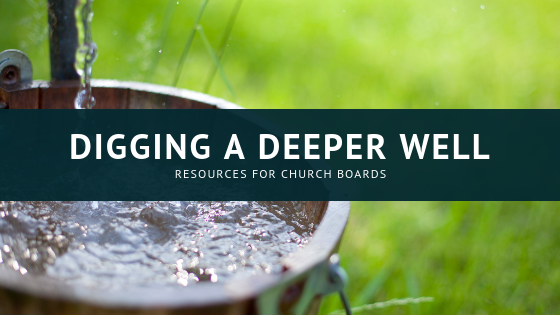In the instructions Paul gives the followers of Jesus at Corinth about the Lord’s Supper, we may also glean some wisdom for church boards.
1 Corinthians 11:23-33
23 For I received from the Lord what I also handed on to you, that the Lord Jesus on the night when he was betrayed took a loaf of bread, 24and when he had given thanks, he broke it and said, ‘This is my body that is for you. Do this in remembrance of me.’ 25In the same way he took the cup also, after supper, saying, ‘This cup is the new covenant in my blood. Do this, as often as you drink it, in remembrance of me.’ 26For as often as you eat this bread and drink the cup, you proclaim the Lord’s death until he comes.
27 Whoever, therefore, eats the bread or drinks the cup of the Lord in an unworthy manner will be answerable for the body and blood of the Lord. 28Examine yourselves, and only then eat of the bread and drink of the cup. 29For all who eat and drink without discerning the body, eat and drink judgement against themselves. 30For this reason many of you are weak and ill, and some have died. 31But if we judged ourselves, we would not be judged. 32But when we are judged by the Lord, we are disciplined so that we may not be condemned along with the world.
33 So then, my brothers and sisters, when you come together to eat, wait for one another.
Verse 29, chastising “all who eat and drink without discerning the body,” has led many Christians across the centuries to think that we have to totally understand the nature of the body of Christ in the bread and cup. But the “body” Paul calls us to discern is the body of Christ in those who are gathered. Hence, we are ultimately instructed “to wait for one another,” in order to discern the body of Christ of which we are a part.
. . . Which leads us to one of the few “don’t do it!” rules we will offer in this space. As a church board, don’t ever poll or survey your congregation in order to discern anything of importance or value. Polling is a shortcut that congregations employ to avoid doing the hard work of relationship.
“But we need to take the pulse of the congregation.” We know.
“But we have a large congregation, and how else can we get good feedback?” We hear that.
“But we have a small congregation, and people need an anonymous way of offering their thoughts.” We understand.
“But often we are just seeking a simple bit of information about preferences.” Okay.
If you want to survey retreat participants to find out who wants chicken vs. lasagna, or send a Doodle poll to set church board meeting times, no problem. But if you want to discern a way forward for your congregation, then, as Paul instructs us, gather in relationship and “wait for one another.”
Boards are called to discern the movement of the spirit of God in their midst and to discern how the Body of Christ can get on – and stay on – a journey of depth and faithfulness. That is rarely accomplished by majority vote.
And who fills out surveys in the first place? As hotels and airlines will tell you, people fill out surveys when they have had a once-in-a-lifetime good experience, or when things – little or big – have gone wrong. Then they are motivated to fill out the survey, leaving a vast middle ground of opinions silent.
The same happens in congregations. When an individual fills out a congregational survey and hits “Submit,” that is usually not an exercise in building up the Body of Christ. Anonymity is not part of the job description of being part of the Body of Christ.
How then does one ‘discern the body?’
Gather together to share and listen to one another. (10% sharing, 90% listening). Instead of a survey, if people are invited to gather for 30 minutes after worship (or at other times in the week) and asked the questions you wanted to put in the survey, what you will get is folks learning that their “obvious viewpoint” is not normative for everyone, and that most matters of discernment are nuanced and complex. And then, conclude that gathering in prayer. Listen to God, remembering that God dislocates as often as God comforts (or reinforces) previously held positions.
Is this hard work? Yes.
Is it inefficient? At first glance, yes.
Will it slow you down? Maybe… but slow is sometimes faster in getting where you want to go.
Most significantly, will this harder, less efficient, slower approach to discernment build you up as the Body of Christ? Yes—every time.
- What is your church board in need of discerning right now?
- How are you going to do that work of discernment?








No Comments